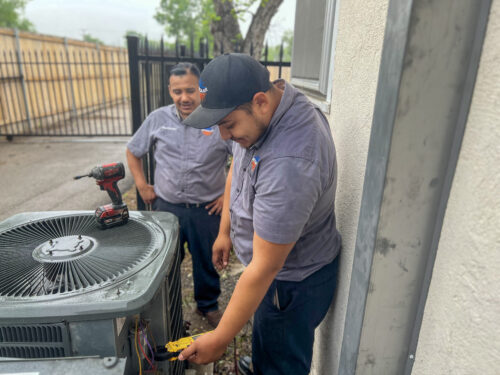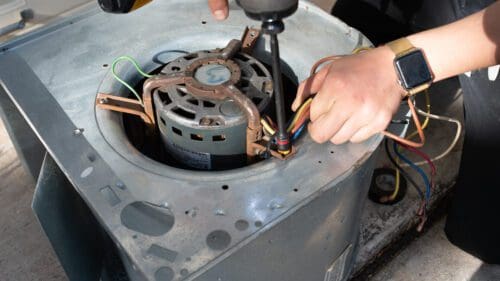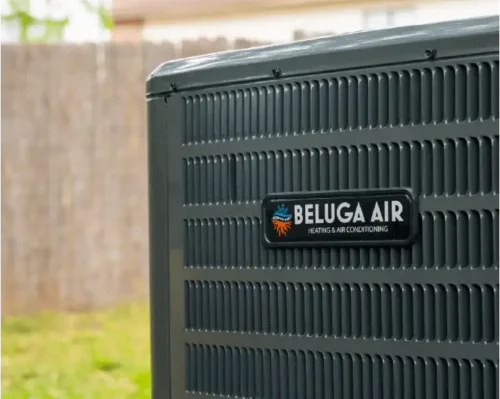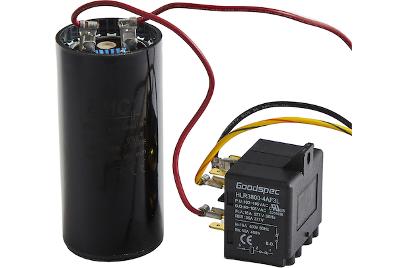Introduction
Embarking on the journey of HVAC system replacement is a pivotal decision for homeowners, intertwining comfort with cost and convenience. Common myths may cloud judgment, leading to procrastination or premature decisions about when to introduce a new climate guardian into your home. This article will unveil the clear signs that it’s time to bid farewell to your faithful HVAC system and welcome an upgrade that promises enhanced efficiency and reliability. We’ll embark on a comprehensive exploration of the indicators that whisper (or sometimes shout) the need for a change, ensuring your replacement decision is well-informed and timely. Prepare to navigate through the nuanced world of HVAC systems with an objective lens, focusing on factual, real-world applications free from the haze of opinionated narratives. A well-functioning HVAC system isn’t just about personal comfort—it’s about making a smart investment in your home’s future.
Signs that Indicate the Need for HVAC System Replacement
Understanding when to retire your trusty HVAC system is akin to reading the concluding chapter of a long novel – you sense the end is near when the pages start to wear. With HVAC systems, age is a pivotal metric; most systems are primed for substitute after 10 to 15 years. Like the gradual transformation of technology that renders older gadgets obsolete, so too do advancements in HVAC efficiency mandate consideration of modern alternatives.
- Frequent Breakdowns: The recurrence of malfunctions in your HVAC unit is a clear signal, whispering the need for a replacement option.
- High Energy Bills: When your energy costs begin to climb without a change in home usage habits, it’s a telltale sign that efficiency is waning, and a replacement cycle may be due.
- Technology and Efficiency: With ever-improving efficiency standards, your older system may be falling behind, not just in performance but also in environmental friendliness.
- Common Problems: Odd noises, inconsistent temperatures, and the inability to keep up with your comfort demands can all be indicators that it’s time to explore replacement markets.
Don’t wait for a breakdown to tell you it’s time for change. Proactive consideration of these signs can lead to timely replacement service, ensuring seamless comfort and efficiency in your home.
Benefits of HVAC System Replacement
The decision to replace your HVAC system may not only rejuvenate the air you breathe but also the vitality of your home’s efficiency. One of the most compelling advantages is the enhancement of indoor air quality. A new system can effectively mitigate the accumulation of dust and allergens, ensuring a healthier living environment. Moreover, homeowners will often observe a significant reduction in energy costs due to advancements in technology that offer superior energy efficiency.
- Cost Savings: Over time, the investment in a modern HVAC system can translate to considerable savings on utility bills.
- Home Value Increase: An updated system can boost your property’s marketability and desirability, potentially increasing its resale value.
- Environmental Benefits: Upgrading to a model that conforms to current efficiency standards contributes to a smaller carbon footprint.
Thus, acknowledging the signs that herald the need for a replacement can lead to these substantial benefits, securing both your comfort and investment.
Conclusion
Understanding when to replace your HVAC system is pivotal for maintaining a comfortable and energy-efficient home. Ignoring the telltale signs can lead to more than just discomfort; it can result in exorbitant energy bills and unforeseen system failures. Being proactive about HVAC system replacement can save you money and spare you from the inconvenience of sudden breakdowns. By heeding the warning signals and performing regular maintenance, you’re not only ensuring a steady flow of clean air through your living spaces but also contributing to a more sustainable future with energy-saving technology.
For those seeking further guidance or pondering over the nuances of a replacement policy, additional resources are at your disposal. From exploring replacement plans to understanding the replacement cost, the journey to enhancing your home’s HVAC system doesn’t have to be a solo adventure. Engage with professionals who can provide tailored advice and aid in making an informed decision that resonates with your specific needs and circumstances.
Ultimately, keeping your HVAC system in check is more than a mere task; it’s an investment in your home’s welfare and your family’s comfort. So, remember – the key to a serene and efficient home environment lies in recognizing the lifecycle of your HVAC system and acting accordingly.











